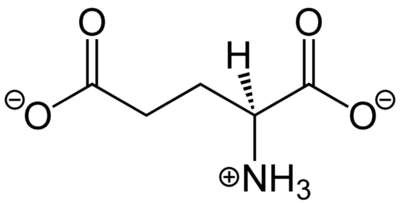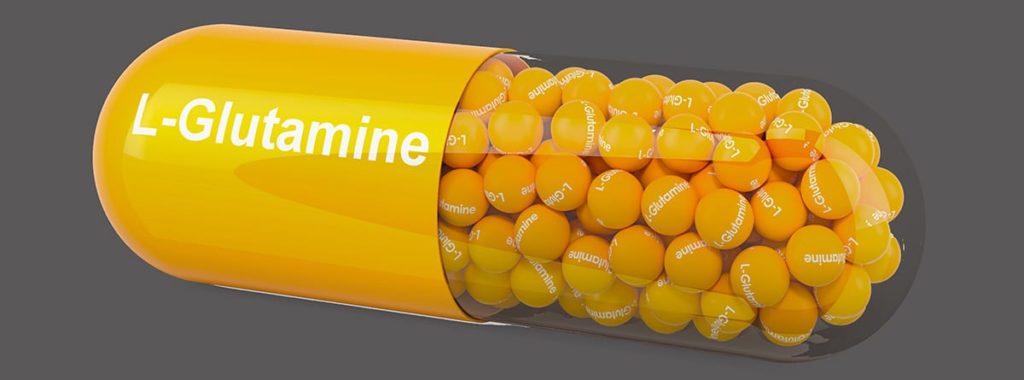CONTACT
We will reply as soon as possible.
Enevia Health, LLC
30 N Gould Ste N, Sheridan, WY 82801, USA
Font: https://tacanow.org/family-resources/glutamate/
The symptoms we often associate with autism, such as anxiety, tics, and inattention, can be caused by an imbalance of neurotransmitters in the brain, specifically glutamate and GABA. However, reducing the amount of this free substance in the brain can help alleviate these symptoms. In this article, we will describe why it is important to balance it and GABA, the symptoms to look for, and interventions that are helpful.
Glutamate is an amino acid neurotransmitter. Amino acids are the building blocks of proteins.
It is a non-essential amino acid, this means that our body can produce it on its own, so we do not need to consume it. It is bound to protein as glutamic acid or may be unbound as MSG (monosodium glutamate).
Neurotransmitters are molecules that transmit messages between nerve cells to the muscles, glands, and organs in the body. Neurotransmitters cause excitatory, inhibitory or modulatory responses.
It is an excitatory neurotransmitter, meaning it stimulates the action of target cells.
The body needs it to perform important functions. For example:

When there is too much in the brain, physical and emotional symptoms can appear, such as:
As is the case with almost everything in the body, when it comes to amino acids, it's all about balance. Therefore, the problem occurs when there is too much or too little in the body.
This amino acid is exciting, it needs to be balanced with GABA, which is calming. Consequently, An imbalance between the two can cause problems with sleep, anxiety, or concentration.
Besides, Research shows that children with autism tend to have too much glutamate and not enough GABA.
Likewise, people with PANS or PANDAS would generally have problems regulating this substance.
Glutamate and inflammation are intertwined. So, if there is inflammation, it is likely that you have high levels of the amino acid. Likewise, if you have high levels, the body is likely to generate inflammation.
There are several ways to help determine if your child's symptoms can be attributed to the toxicity of this substance. The easiest and most cost-effective way is to try a diet low in this substance and observe behavioral changes.
However, you may want to consider talking to your child's doctor about having the following lab tests done to help determine if your child's symptoms are caused by excessive levels:
Analysis of amino acids in urine: provides an overall average of glutamate and GABA levels. However, this test can be unreliable as it cannot indicate whether it is building up in certain areas of the brain, which is often the case.
Blood test: A simple blood test can evaluate blood plasma levels. But this test is also unreliable as it will give you an overall average instead of a clear picture.
Lumbar puncture: This is one of the most reliable tests because it measures levels in the cerebrospinal fluid. Unfortunately, cerebrospinal fluid can only be collected through a lumbar puncture, which is a very invasive procedure.
Magnetic resonance: Recent discoveries show that an MRI of the brain with a resolution of 5 Tesla can give an indication of where it accumulates in the brain. Although reliable, an MRI can be difficult to obtain, especially if your child requires sedation.
Finally, there are several ways to reduce excessive levels in the body, many of which are easy and inexpensive to implement.
Because certain foods contain high amounts of free glutamate, one of the easiest ways to reduce toxicity is through dietary intervention. This can be done by eliminating or reducing foods high in this amino acid, such as:

It can also be reduced with prescription medications, such as:
Another way to help establish a balance between glutamate and GABA in the brain is through supplementation. While some supplements can help reduce it, others increase it.

You can also reduce it through lifestyle changes, such as reducing or eliminating screen time. As unlikely as it may seem, research shows that electromagnetic fields increase it:
“Exposure to extremely low frequency electromagnetic fields causes cognitive impairment associated with altered glutamate levels”
“Variations of the concentration of this substance within the synaptic cleft in the presence of electromagnetic fields”
So if you know your child has problems with too much of this substance and screen time causes them to become more stimulated, consider reducing their exposure to EMF in your efforts to regulate it.
In short, if your child shows symptoms of increased anxiety, stimulation, restlessness, or seizures, consider this elevated amino acid in the brain as a possible reason. After all, reducing free glutamate is a relatively easy and inexpensive intervention to help eliminate these symptoms, thereby offering a better quality of life for your child.
At Enevia we care about your health. If you are interested in any of our tests, check out our website: www.eneviahealth.com and take control of your health.
We will reply as soon as possible.
30 N Gould Ste N, Sheridan, WY 82801, USA
Our groups are the ideal platform to learn and share your scientific concerns about neurodevelopment issues
*Our purpose is informational only, it is not intended to be a substitute for medical advice, diagnosis or treatment.
We are working on our website. For any queries, you can contact our customer service team at atencionalcliente@eneviahealth.com